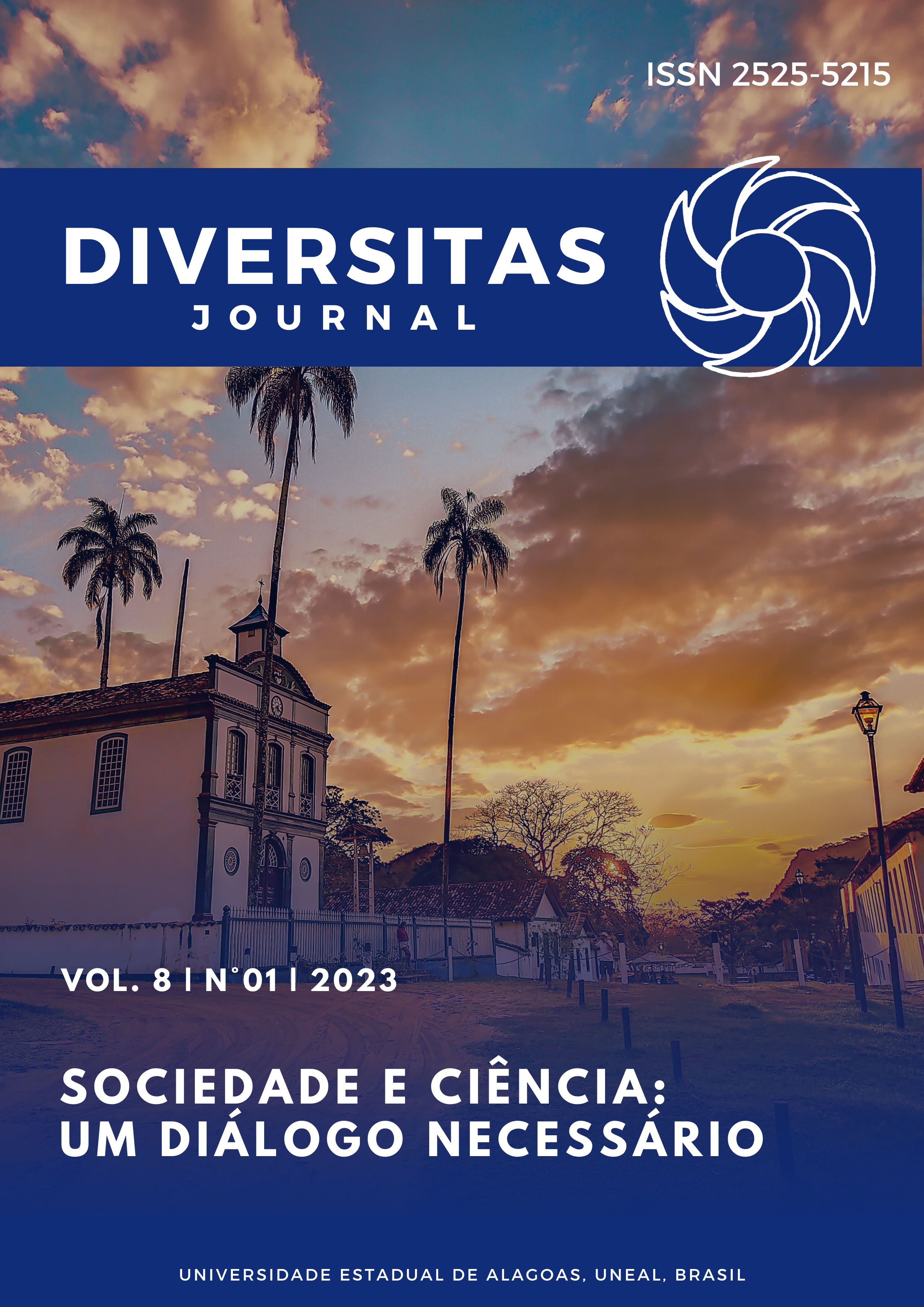The LGBTQIA+ vulnerability and the need to create shelters in Brazil
DOI:
https://doi.org/10.48017/dj.v8i1.2113Keywords:
LGBTQIA vulnerability; LGBTQIA shelter homes; reception, sexuality and gender; public policy.Abstract
Brazil is the country that kills the most LGBTQIA+ population in the world. Thus, situations of exclusion and violence both in the family environment and on the streets have increased in recent years. In light of this statement, this study aims to relate the vulnerability and situations of exclusion against the LGBTQIA+ population and the need for shelter centers for this minority. The methodology used in the production of the work will be the qualitative bibliographic research when reviewing articles, books and periodicals. It is understood that the lack of information and violence are allied and this is a contributing factor to such vulnerability, since they are motivated by prejudice and other elements that surround the life of the individual belonging to this population. In this context, it is necessary to guarantee the principle of human dignity, affirmed by the 1988 Constitution.
Metrics
References
ADORNO, R. C. F. Os jovens e sua vulnerabilidade social. 1ª ed. São Paulo: AAPCS. Associação de Apoio ao Programa Capacitação Solidária, 2001.
BAZARGAN, Mohsen; GALVAN, Frank. Perceived discrimination and depression among low-income Latina male-to-female transgender women. BMC Public Health. V.12, n.663, pp. 1-8, 2012.
BOURDIEU, Pierre. A dominação masculina: A condição feminina e a violência simbólica. tradução de maria Helena Kuhner. Rio de Janeiro: Bestbolso, 2014.
BORRILLO, Daniel. Homofobia. Barcelona: Ediciones Bellaterra, 2001, p. 36.
BUTLER, Judith. Problemas de gênero. Feminismo e subversão da identidade. Rio de Janeiro, Civilização Brasileira, 2003.
CORRÊA, C. S. Violência urbana e vulnerabilidades: o discurso dos jovens e as notícias de jornais. Dissertação (Mestrado em Psicologia) Pontifícia Universidade Católica do Rio de Janeiro, Rio de Janeiro, 2010.
GUIMARÃES, M. C. S; NOVAES, S. C. Autonomia Reduzida e Vulnerabilidade: Liberdade de Decisão, Diferença e Desigualdade. Revista bioética. Brasília, v. 7, n. 1. 1999.
LOPES, J. L. S. Proposta de indicadores de sustentabilidade aplicado para o estudo da vulnerabilidade da comunidade de Batoque-Aquiraz/CE. Tese (Doutorado em Geografia) – Curso de Geografia, Universidade Federal do Ceará_UFC, Fortaleza, 2013.
Mona Migs. UFPE. Agência Brasil. Disponível em:https://agenciabrasil.ebc.com.br/direitos-humanos/noticia/2016-05/plataforma-online-ajuda-homossexuais-encontrar-lar.Acesso em:10/07/2021.
% dos brasileiros não aceitariam filho homossexual, diz pesquisa. G1.Globo.com, São Paulo. Disponível em: http://g1.globo.com/brasil/noticia/2013/05/37-dos-brasileiros-nao-aceitariam-filho-homossexual-diz-pesquisa.html. Acesso em: 16, 07 e 2021.
GRUPO GAY DA BAHIA. Relatórios anuais de mortes LGBTI+.Disponível em:https://grupogaydabahia.com.br/relatorios-anuais-de-morte-de-lgbti/.Acesso em: 25 set. 2019.Acesso em: 16, 07 e 2021.
The Bridge Homeless Assistance Center / Overland Partners. Disponível em:https://www.archdaily.com/115040/the-bridge-homeless-assistance-center-overland-partners. Acessado em 16/07/2021.
casas de acolhimento para LGBTIs no Brasil.Globo.com. disponível em: https://casavogue.globo.com/Arquitetura/Cidade/noticia/2020/06/12-casas-de-acolhimento-para-lgbtis-no-brasil.html. Acesso em 17 /07/2021.
Primeira Casa de Acolhimento em Alagoas para população LGBTQIA+ é inaugurada. Mundomais.com.br. Disponível em: https://www.mundomais.com.br/noticias/2021/01/noticia-8030-primeira-casa-de-acolhimento-em-alagoas-para-populacao-lgbtqia-e-inaugurada . Acessado em 16/07/2021
Ajude a manter o Centro de Acolhimento LGBTQIA+ de Alagoas. Gazetaweb.com. Disponível em: http://diversidade.blogsdagazetaweb.com/tag/centrolgbt/. Acessado em: 16/07/2021.
ONGs e projetos LGBTs para você ajudar (e conhecer) em sua cidade. cantracalivre.com.br. Disponível em: https://catracalivre.com.br/cidadania/ongs-e-projetos-lgbts-para-voce-ajudar-e-conhecer-em-sua-cidade/ . Acessado em 18/07/2021.
Downloads
Published
How to Cite
Issue
Section
License
Copyright (c) 2023 Lívia de Oliveira Silva, Alana, Léo, Swan, Marcos

This work is licensed under a Creative Commons Attribution 4.0 International License.
The Diversitas Journal expresses that the articles are the sole responsibility of the Authors, who are familiar with Brazilian and international legislation.
Articles are peer-reviewed and care should be taken to warn of the possible incidence of plagiarism. However, plagiarism is an indisputable action by the authors.
The violation of copyright is a crime, provided for in article 184 of the Brazilian Penal Code: “Art. 184 Violating copyright and related rights: Penalty - detention, from 3 (three) months to 1 (one) year, or fine. § 1 If the violation consists of total or partial reproduction, for the purpose of direct or indirect profit, by any means or process, of intellectual work, interpretation, performance or phonogram, without the express authorization of the author, the performer, the producer , as the case may be, or whoever represents them: Penalty - imprisonment, from 2 (two) to 4 (four) years, and a fine. ”


















